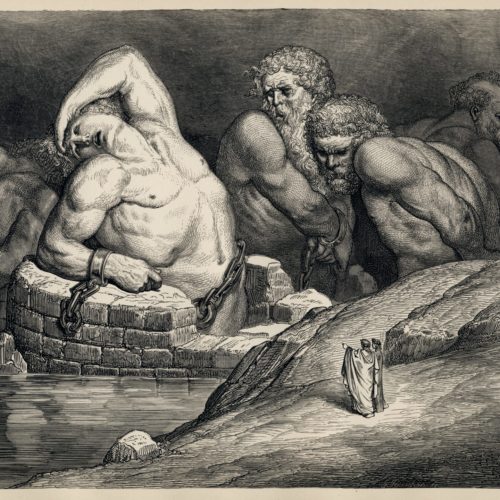Cardinal McCarrick was also one of the most powerful men in the U.S. church, the bishop of one of the major sees in the universal church and a personal friend of several popes. What could saying something about him do to your career?Career. The word curdles when it is applied to a calling to religious life. It conjures up aspiring starlets accepting invitations to Harvey Weinstein’s hotel room. By inference then, is the casting couch just one of those fixtures an eager seminarian on his way up learns to live with?
McCarrick’s Seminarians
Fr. Martin supposed that "there may have been an enormous amount of shame or embarrassment among the seminarians and priests who were forced into McCarrick’s embrace or bed.” But how were they forced? By what means? McCarrick was a seducer, not a goon. If the motivating force was clerical ambition, his bedmates were self-ensnared.
If there is anything deviant or immoral going on at the seminary and he brings it to the attention of his superiors, he is likely risking expulsion. Many members of seminary faculties do not appreciate those who go to superiors with complaints, especially about sexual foibles.
True enough, but askance of the point. What might pass as prudent reticence in a law firm or a corporate office is less admissible when we are talking about preparation for the priesthood. Bosses and coworkers are not pledged to the virtue of chastity, a signal of sanctity to which the priesthood alone testifies. The celibate priesthood stands in witness against our own sexual foibles, errant longings and compromises. Of what good are men who would hold laity to their marriage vows while exempting each other—or themselves—from the supporting moral framework? Casuistry takes the sting out of the question. Celibacy, some tell themselves, holds meaning only in relation to the married state. Under that dispensation— doublethink—a seminarian can gain life experience in the hot tub at All Boyz Sauna and still consider himself celibate. It is a nimble evasion that has acquired enthusiasts over recent decades. In 1996, Wayne Wurst, a diocesan priest speaking on Chicago radio about seminarians at Mundelein, charged: “A large number of students had been convinced by some liberal teachers that sexual promiscuity with the same sex was not a violation of celibacy.” At the time, Fr. Wurst was referring to circumstances in play since the 1970s. Today, any number of priests have said that Wurst’s claim held true when they were in seminary in the 1980s and ‘90s. By now, the syndrome is entrenched.
This pre-history of the McCarrick scandal does not make it into Fr. Martin’s summary of explanations. In a follow-up essay later in July, he again addressed the question of why priests and seminarians might not report sexual harassment by a superior. He speculated on the psyche of all those mute witnesses. He recounted their probable fears: of being labeled a trouble-maker; of sullying the Church’s image; of being told “not to take things so seriously;” of adding to the burdens of those in charge; of negative reactions from peers. Fear followed fear, within the institution and within the individual. Sympathetic scenarios of personal emotion are an easy swallow for people accustomed to substituting psychology for a sense of sin. Moral demands give way to the absolutions of therapy. The swap is sufficient for a culture grown mistrustful of moral judgments. Fr. Martin’s list of excuses is certainly plausible. But emphasis on plausibility grants prerogatives to feelings at cost to the faculty of judgment—a capacity crucial to the distinctions on which moral judgments are made. Jesus’ words in the Sermon on the Mount, “Judge not that ye be not judged,” is popularly—and erroneously—taken as a wholesale rejection of the notion of judgment. But the second half of his statement, more subtle, opens a wider lens: “for with what judgment ye judge, ye shall be judged.” In other words, as moral philosopher Mary Midgley explained:
While we cannot possibly avoid judging, we can see to it that we judge fairly, as we would expect others to do to us. That he [Jesus] did not actually mean to stop all forming and expressing of moral judgments is plain enough from the fact that he often expressed quite violent ones himself against the powerful of the earth.
When a pope chirps, “Who am I to judge?” he is, in reality, making a judgment against his own ability to fill his office. Providing moral clarity—a work of reasoned judgment—is essential to the papal job description. And to that of every man seeking ordination. In their very person, priests represent a moral order that transcends the alibis we make for ourselves. Their vocation argues against trendy discounts on moral demands, whether for convenience or therapeutic reasons. A priesthood tenanted by men dispensing themselves, or each other, from the solemnity of their calling is an institution in jeopardy. The peril has nothing to do with celibacy. It has everything to do with contemporary eclipse of the holy, a darkening that our own hierarchy has facilitated. Note: Mary Midgley’s quote is in Can’t We Make Moral Judgements? (1991), St. Martin’s Press.







